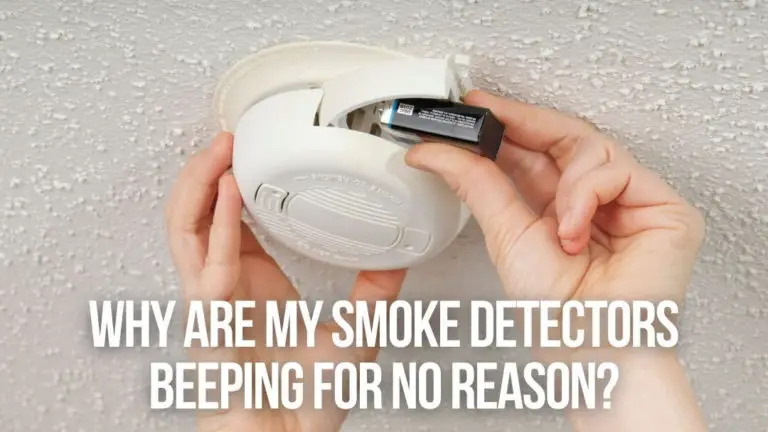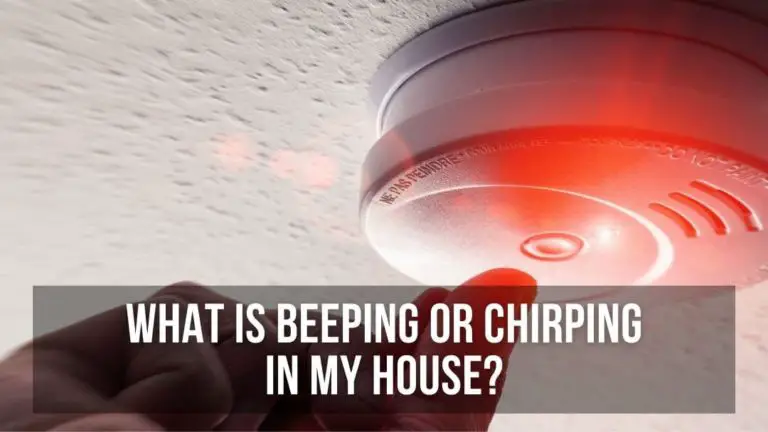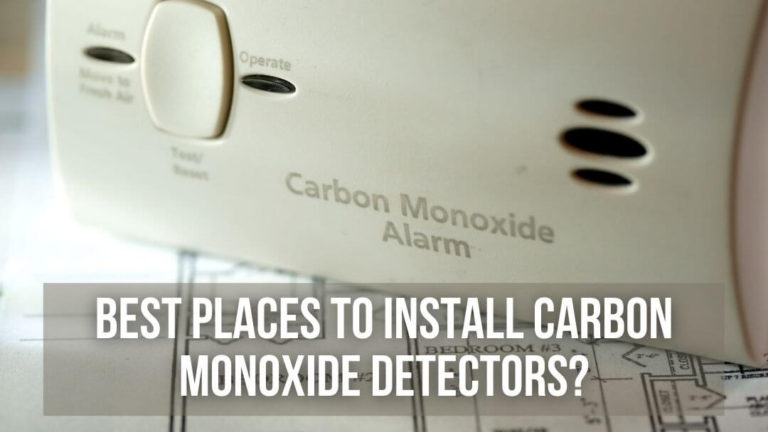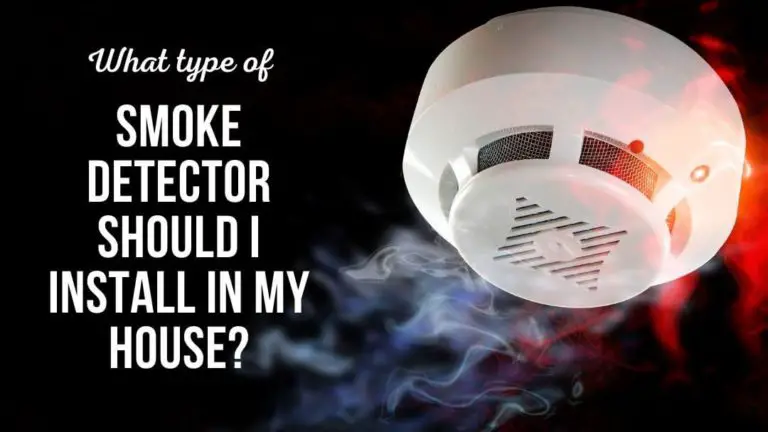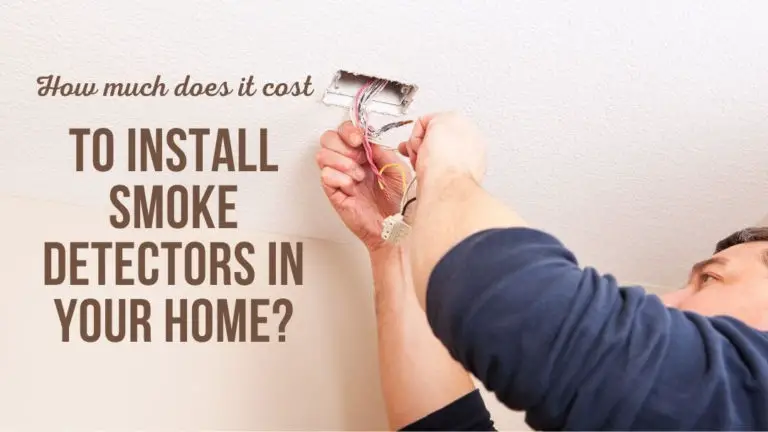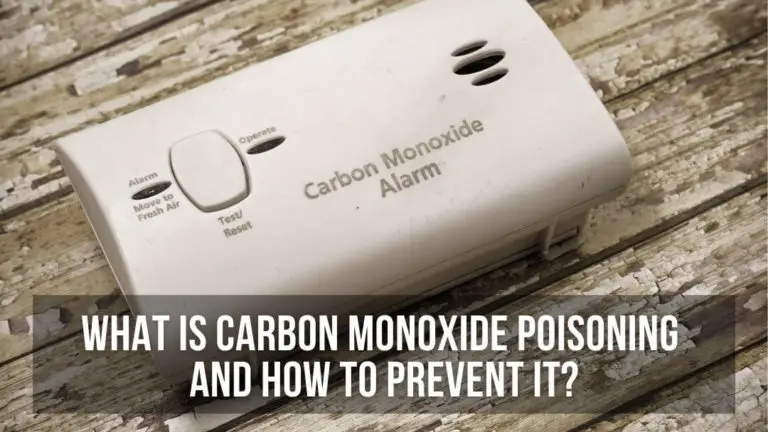Do Smoke Detectors Really Expire After Ten Years?
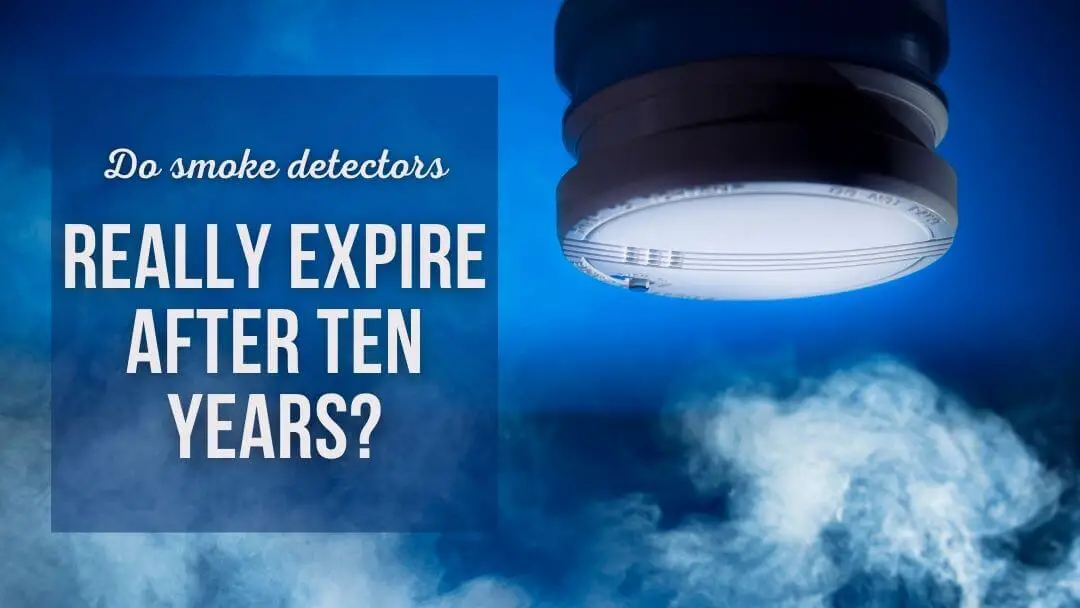
Smoke detectors are an essential part of any home, but do you know how long they last? It turns out smoke detectors have a lifespan of 10 years. After that, they may not work as well as they should in the event of a fire.
Do smoke detectors really expire after ten years? Smoke detectors don’t expire, but according to the National Fire Alarm Association, you should replace your smoke detectors after ten years because the internal components of smoke alarms lose their effectiveness to sense a fire.
So it’s important to replace your fire alarms ten years after the manufactured date. Learn more about smoke detector life spans and find out how to get a new one for your home.
How do I know if my smoke detector is expired?
First, it’s important to be aware that “expiration” is a very misleading word. Fire safety experts have discovered that smoke detectors have a life expectancy of up to ten years.
- Most smoke detectors have the manufactured date written on the back
- It’s up to you to check the date and replace the sensor if it’s more than ten years old.
- You will not get any notifications from the smoke alarm to alert you that it has expired.
- If your smoke detector doesn’t have a manufactured date, then it’s probably a good idea to get a new smoke detector.
What happens when a smoke detector expires?
An expired smoke alarm will still function, but it may not detect a fire as quickly as a new one.
When smoke detectors expire, they can also cause false alarms and eventually become so old that they won’t work.
People do not know that smoke alarms expire. Smoke detectors are often taken for granted until they malfunction or become faulty.
A fire can get out of control within a matter of minutes. Having a smoke detector that has been expired can have serious consequences.
Why do smoke detectors expire?
Smoke detector expiration is a common concern among homeowners, but the answer to this question isn’t as clear as it seems. There seems to be no explanation for why they expire.
So, do they really expire? I install burglar and fire alarms for a living, and I have installed and tested thousands of smoke alarms over the past 27 years.
I use a can of fake smoke to trip the smoke detectors, and I have noticed that older smoke alarms take a lot longer to trigger.
I sometimes have to spray smoke multiple times into the smoke detector and wait several minutes before the sensor detects the smoke.
Additionally, customers complain that their smoke detectors never sounded while cooking, and smoke filled the room.
During the smoke detector’s life, components inside the smoke detector may deteriorate or degrade fully, leading to poor performance or failure.
Once smoke detectors near their expiration, they become unreliable and give homeowners a false sense of security if they are not replaced on time.
If a smoke detector does expire, what should you do about it?
The answer depends on the type of smoke detectors you have in your home. There are two types of smoke alarms, battery-operated and hard-wired. Both are relatively simple to replace.
Replacing battery-operated smoke detectors
- Twist the smoke detector off its mounting bracket.
- Loosen the screws and remove the mounting bracket from the wall or ceiling.
- Screw the new mounting bracket on the wall or ceiling and tighten the screws.
- Remove the plastic tab to activate the battery.
- Twist the new smoke detector onto the mounting bracket.
Replacing hard-wired smoke detectors
Hard-wired smoke detectors are wired to your home’s electrical system and should be replaced by a licensed electrician.
If you want to replace them yourself, make sure you first turn off the circuit breaker for the smoke detectors in your electrical panel.
There are usually two or three wires connected to the smoke alarms. The connector attaching the wiring harness needs to be squeezed in and pulled out of the sensor.
You can use the existing connector to attach the new smoke detector in most cases.
- Twist the smoke detector off its mounting bracket.
- Disconnect the wire harness connecting the electrical wires to the smoke detector.
- Loosen the screws and remove the mounting bracket from the wall or ceiling.
- Install the new mounting bracket.
- Attach the wires to the new smoke detector
- Twist the new smoke detector on the mounting bracket.
- Turn the circuit breaker back on and remove the plastic tab to activate the battery inside the smoke detector.
- Test all the new smoke alarms by pressing the test button on the front of the sensor.
What type of smoke detector should I install?
There are two types of smoke detectors, ionization and photoelectric.
Each sensor detects fires in different ways and stages.
- Photoelectric smoke detectors are also known as photo smoke detectors. Identifying fires from the smoldering stage before they burst into flames, these alarms provide much more protection from slow-burning fires that might not be detected quickly enough by ionization smoke detectors.
- Ionization smoke detectors are more responsive to detecting flaming fires resulting from flammable liquids, wood, or paper.
- The best type of smoke alarm is one that uses both ionization and photoelectric built into one sensor called a dual sensor.
I have installed many smoke detectors for my customers over the years, and I’ve provided the Amazon links below.
What is a ten-year sealed battery smoke detector?
Sealed smoke detectors provide ten years of reliable service without replacing the battery.
As the name suggests, this type of smoke detector is sealed with a non-replaceable lithium battery with a life span of ten years. After ten years, the smoke sensor starts chirping, and you have to replace the smoke detector.
Final Thoughts
It is essential to replace smoke detectors every ten years, but it’s also important to know which type of sensor you need. By understanding the difference between a photoelectric and ionization sensor, you will be prepared when it comes time to replace your smoke alarms.
Resourses
National Fire Alarm Association
Related Articles
Why are my smoke detectors beeping for no reason?
Smoke Detectors Beeping Three Times But No Smoke
How Much Does It Cost to Install Smoke Detectors in Your Home?
What is Carbon Monoxide Poisoning and How To Prevent It?
Where is the Best Place to Install Carbon Monoxide Detectors?
Why Are My Smoke Detectors Chirping?

